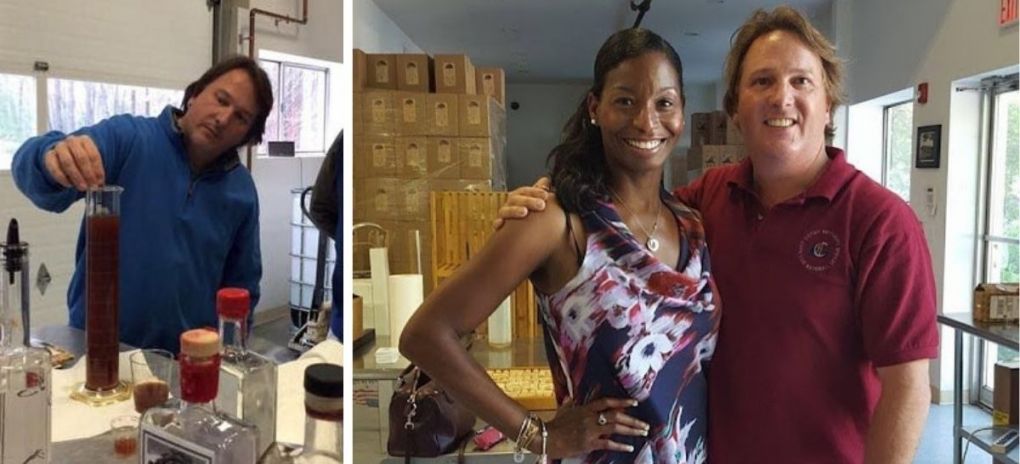
12/09/2022 Founder and Master Distiller of Liberty Tree Distillers, Andrew McCabe shares his journey into the world of distilling and what it takes to run your own distillery.
With the ardor to constantly experiment with one or another spirit, Andrew has been involved in making his own cider, wine, or spirit since he was in college. Having his roots in Scotland, Ireland, and France, he was meant to be a distiller. With an experience of 25 years in the industry, he has worked with numerous distilleries and passionately crafted spirits, fine wines, and beers and has also worked in China. With the zeal to create another great spirit, he started the Liberty Tree Distillery in the outskirts of Boston. Being the Head Distiller, he creates some stunning craft spirits and has been awarded the Gold Award in 2016 and 2015 for the Massachusetts Rum Distillery of the Year. Apart from being a distiller, Andrew is also a great ballroom dancer and is the Business Manager of Sweet Chilli, a company specializing in ballroom dancers' clothes and accessories.
[[relatedPurchasesItems-31]]
What has your distilling career been like? Tell us a little about your background.
It’s been a roundabout way of becoming a distiller… as a high schooler, I made hard cider in my basement. In college, I bartended and made various types of beers in my dorm room. When I purchased my first house, I created a grotto in the basement and became an amateur winemaker. For many years, my daughters and I would crush the annual grape harvest and produce a substantial amount of wine. Winemaking became a pastime for the entire family and was a source of joy for all of us.
My first foray into distilling began after I read “Chasing the Wild Asparagus,” by Euell Gibbons. The book is about learning to forage for natural food and medicine in the New England woods. One section of the book describes a simple still setup that uses a double boiler to condense vapors back into the pot. It worked surprisingly well-distilling the wine, and I was hooked.
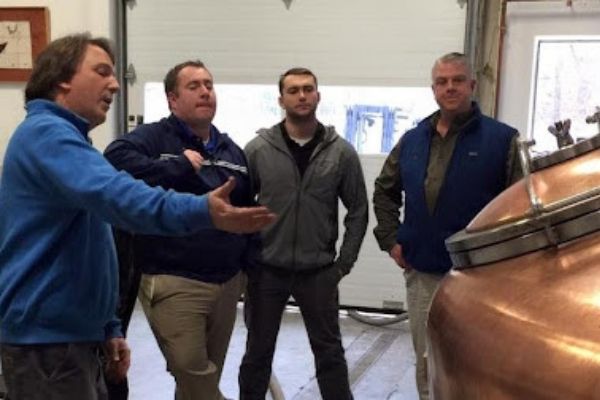
When I was in my 20s, I took over my family-owned construction company. For my distilling career, I was fortunate to have a group of workers from Portugal. They were experts in winemaking and in the distilling of Cachaça. They helped me build my own still and I was off to the races turning my homemade wines into brandy. Along the way, I also spent some time in China. I visited many distilleries and learned about the process of distilling “Baijiu” with various types of grains. I also visited some distilleries in the United States, which also piqued my interest even more. I transitioned into the real estate business and was able to free up some of my time to pursue other interests.
In 2013, we founded AstraLuna Brands/Liberty Tree Distillers. In the beginning, I spent a lot of time researching and devouring as much information as possible. I also relied upon the knowledge of experts. For the most part, people were friendly and willing to lend a helping hand. However, most people were tight-lipped with divulging their recipes. Today I completely understand why everyone protects their recipes. So, I eventually developed some good recipes and have been continually improving on them ever since.
One footnote…the Pandemic has wreaked havoc on the supply chain. We are having difficulty procuring bottles, cans, labels, raw materials, transportation, etc. This poses a great challenge to our growth in terms of cost and ability to deliver products, especially to growing markets. But as a distiller, we always learn to do more with less.
How do you think the Spirits industry has evolved?
In many ways, it has changed and in many ways, it has not. The number of distilleries across the US has multiplied over the past 10 years, ushering a whole host of new and innovative products. New expressions on traditional spirits have given the consumer a wide range of choices. I think the number of new distilleries is leveling off due to the high cost and barrier to entry. Packaging has also improved. New categories such as RTDs have also been a boon to the spirits industry.
However, many issues remain. Distribution is a real challenge for fledging distillers. The major distillers and distributors dominate much of the marketplace, squeezing out regional players. Large retailers are also producing their own products, thereby competing at a price advantage. It remains very difficult for smaller distilleries to bridge the divide and develop a national presence without substantial investment. However, there seems to be a glimmer of hope as states are changing their distribution laws allowing direct shipment and online selling.
Tell us a little about your day-to-day role.
I am not only the Head Distiller for Liberty Tree Distillers, but also Accountant, Payroll Coordinator, HR Director, QA/QC Officer, R&D officer, Sales Rep, Graphics Design Expert, etc. This is not unique to our operation but it would be nice to one day achieve a scale where I could focus 100% on distilling. To be honest, I think having to perform all of these ancillary tasks makes me a better distiller.
As Head Distiller, my job is to monitor all stages of production from sourcing and ordering materials, mashing, fermentation, distilling, barreling, blending, packaging, shipping, and receiving. I like to be involved in all facets of the operation. I like to tinker with the processes to get better results.
But, the most important part of my job is to teach the younger distillers the proper skills and methodology to help them become good distillers themselves.
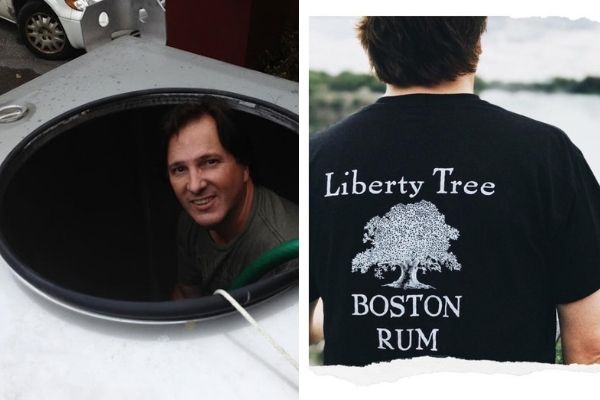
What's unique about your Distillery that you like?
In a short period of time, we have created over 20 unique products including rums, gins, vodkas, brandies, and RTDs. We can quickly bring a product from inception to getting it on the shelf. These acquired skills can be attributed to me spending countless hours studying flavors, processes, packaging design, and logistics.
What were some of the challenges you faced when you distilled your first spirit?
The first spirit we distilled was Cape Cod Great White Rum. We had recently taken delivery of our Vendome Copper still but we're not ready to make a big batch. For weeks I had researched rum recipes online and ran some practice runs on a 15 gallon Hillbilly Still. The results were average at best. I had tried some crazy things such as adding tomato paste during fermentation. But, there was just something missing.
We visited Louisville, KY for the American Distilling Institute (ADI) annual convention and trade show. While sampling local bourbons at the hotel bar, I happened to meet a yeast salesman. I told him my story of woe and explained my process, and he said, “Friend, you have come to the right place!” Within a few days, I received yeast samples designed specifically for rum. He called me a couple of days later and told me which molasses worked best with his yeast as well as the desired Brix and temperature. It was like the distilling gods had blessed me.
Not before long did we make a full-scale batch. I was extremely cautious in making the cuts from heads, hearts, and tails. We sampled the product every five minutes and were then on the way to distilling. It all goes back to employing good equipment and process coupled with the best possible raw materials.
Cape Cod Great White Rum is now an award-winning spirit and is our biggest selling product today.
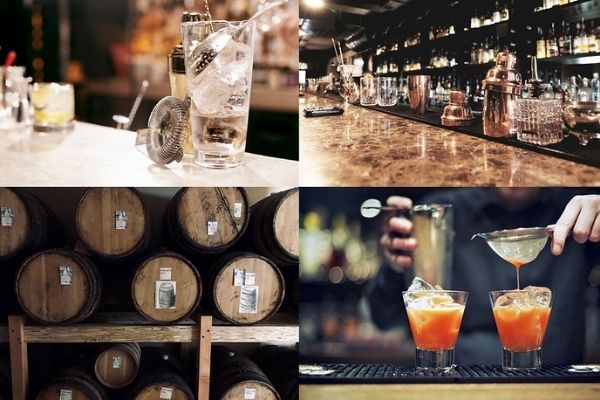
How do you think a distiller can help in driving marketing and sales personally?
The distiller is a symbol of quality and trust in an organization. They have intimate knowledge of the product which gives the consumer a high level of confidence. I have noticed this during in-store tastings and events. People love to “geek out” when speaking directly with the guy who makes the product. Sharing a toast with a customer is my favorite part of distilling. Also, look at any print or TV ad for a “big brand” quality scotch. It always portrays the distiller or blender working their craft.
What are some of the essential skills required to distill?
I’ve learned the most important aspects of distilling are to utilize the best equipment, follow good practices/processes and procure the highest quality raw materials. If you follow these principles, the odds are very good you will make an excellent product. Apart from that, one should also be focusing on having positive skills and traits.
Positive Skills: the ability to plan, ability to react to changing conditions, ability to make good judgment, ability to fabricate anything (brewery engineering), ability to listen to others, ability to take criticism, ability to taste and discern flavors.
Positive Traits: focused, driven, detail-oriented, organized, patient, attentive, honest (integrity), humble and optimistic.
Define a good distiller.
Similar to what I answered above, a good distiller should be able to wear many hats in the organization. They should enable and encourage the development of everyone in the organization.
What advice would you give to future distillers?
First of all, learn how the spirits business works. Study success stories as well as those of failures. Be aware of current and future trends. Talk to as many people as you can…learn as much you can.
You can work in a brewery or a distillery when you start out. You just need to learn best practices in the areas of material handling, safety, hygiene, and process.
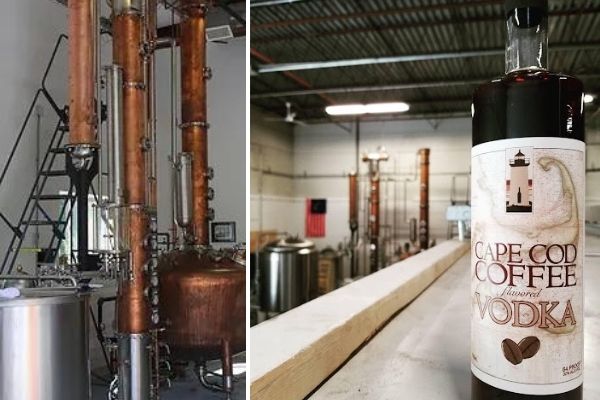
Which is your go-to drink and what is the perfect setting you enjoy it in?
Liberty Tree Boston Rum Manhattan with sweet vermouth, orange bitters, and a dash of Maraschino liqueur. On the rocks or straight up are both great.
My other go-to drink is a Cape Cod Great White Rum on the rocks with a splash of fresh lime juice.
I also have a full lineup of RTD canned cocktails including ParTee Half & Half, ParTee Transfusion, ParTee Peach Tea, ParTee Raspberry Tea, ParTee Rum Punch, ParTee Rum and Cola, Mashpee Mule, Cape Codder, Sippewissett Gin and Tonic, Sweet Liber-Tea, Shark Bite. These delicious cocktails can be enjoyed straight-up or on the rocks on the course, at the beach, or at the pool.
What do you do when you are not distilling?
I like to play golf, fly fish, target shoot, cook, and research new product ideas.
What is your idea of a good life?
I’ve always tried to live the good life. To me it means to follow the golden rules….take care of yourself, your family, your town, your state, your country, and your world.
2025 Registrations are now closed


